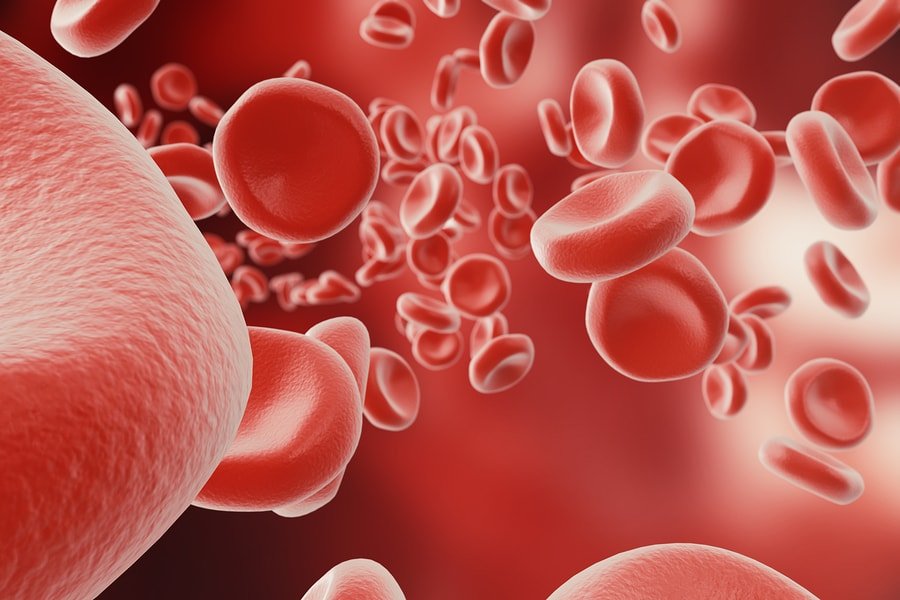
Haemoglobin (Hb) is a protein found in red blood cells that is responsible for carrying oxygen throughout the body. The normal range for Hb is 12 to 16 grams per deciliter (g/dL) for women and 13.5 to 17.5 g/dL for men. When Hb levels are higher than this range, it is referred to as high Hb or polycythemia. In this article, we will explore the causes, symptoms, diagnosis, and treatment of high Hb.
Causes of high Hb:
There are several causes of high Hb, including:
- Smoking: Smoking causes the body to produce more red blood cells, leading to an increase in Hb levels.
- Dehydration: When the body is dehydrated, the blood becomes more concentrated, leading to an increase in Hb levels.
- Lung diseases: Lung diseases such as chronic obstructive pulmonary disease (COPD) can cause the body to produce more red blood cells, leading to an increase in Hb levels.
- Sleep apnea: Sleep apnea is a condition where a person’s breathing is interrupted during sleep. This can cause the body to produce more red blood cells, leading to an increase in Hb levels.
- Kidney disease: Kidney disease can cause the body to produce more red blood cells, leading to an increase in Hb levels.
Symptoms of high Hb:
The symptoms of high Hb can vary depending on the severity of the condition. Some common symptoms include:
- Headaches: High Hb levels can cause headaches due to the increased blood viscosity.
- Dizziness: High Hb levels can cause dizziness due to the decreased flow of blood to the brain.
- Fatigue: High Hb levels can cause fatigue due to the increased workload on the heart.
- Shortness of breath: High Hb levels can cause shortness of breath due to the decreased flow of oxygen to the tissues.
- Chest pain: High Hb levels can cause chest pain due to the increased workload on the heart.
Diagnosis of high Hb:
The diagnosis of high Hb begins with a physical exam and a review of the patient’s medical history. The doctor may also order blood tests to confirm the diagnosis. These blood tests may include:
- Complete blood count (CBC): A CBC measures the levels of red blood cells, white blood cells, and platelets in the blood. This test can help determine if the patient has high Hb.
- Blood viscosity test: A blood viscosity test measures the thickness of the blood. High Hb levels can cause the blood to be thicker than normal.
- Oxygen saturation test: An oxygen saturation test measures the amount of oxygen in the blood. High Hb levels can decrease the amount of oxygen that is carried by the blood.
Treatment of high Hb:
The treatment of high Hb depends on the underlying cause of the condition. Some common treatments include:
- Phlebotomy: Phlebotomy is a procedure where blood is removed from the body to reduce the number of red blood cells. This can be an effective treatment for high Hb caused by smoking or dehydration.
- Medications: Medications such as hydroxyurea and interferon can be used to reduce the number of red blood cells in the body. These medications may be prescribed for patients with high Hb caused by lung disease or kidney disease.
- Lifestyle changes: Lifestyle changes such as quitting smoking and staying hydrated can help reduce Hb levels in some patients.
- Oxygen therapy: Oxygen therapy may be used to increase the amount of oxygen in the blood in patients with high Hb caused by sleep apnea
Sources: - “High hemoglobin levels: Causes, symptoms, and treatment.” Medical News Today. https://www.medicalnewstoday.com/articles/320384
- “Polycythemia vera.” Mayo Clinic. https://www.mayoclinic.org/diseases-conditions/polycythemia-vera/symptoms-causes/syc-20355850
- “High Hemoglobin Count.” Healthline. https://www.healthline.com/health/high-hemoglobin-count
- “Polycythemia.” Merck Manual Consumer Version. https://www.merckmanuals.com/home/blood-disorders/polycythemia-vera/polycythemia
- “High Hemoglobin.” Lab Tests Online. https://labtestsonline.org/tests/high-hemoglobin
- “Causes of High Hemoglobin Levels.” Verywell Health. https://www.verywellhealth.com/high-hemoglobin-levels-causes-and-treatment-5089219


